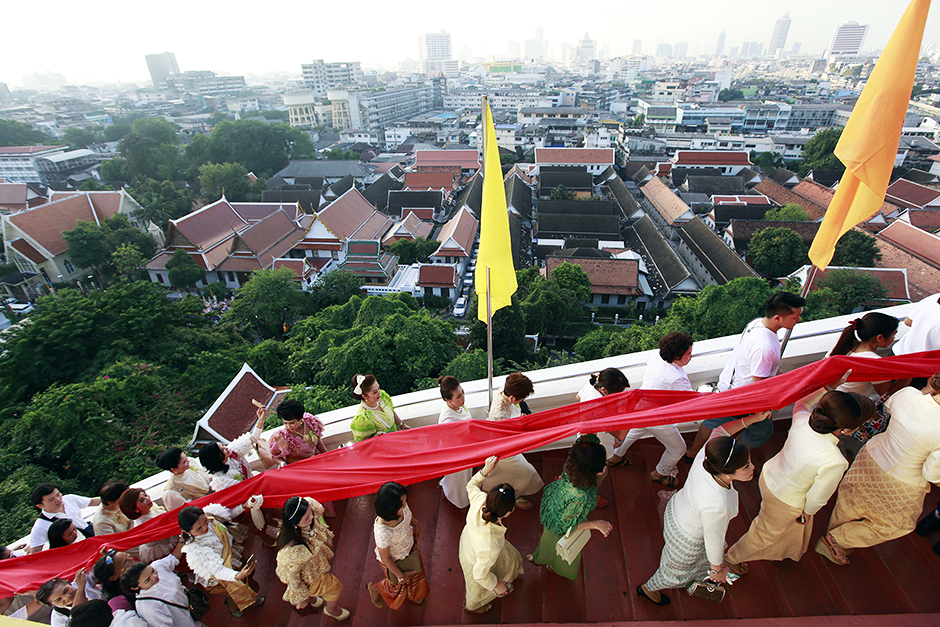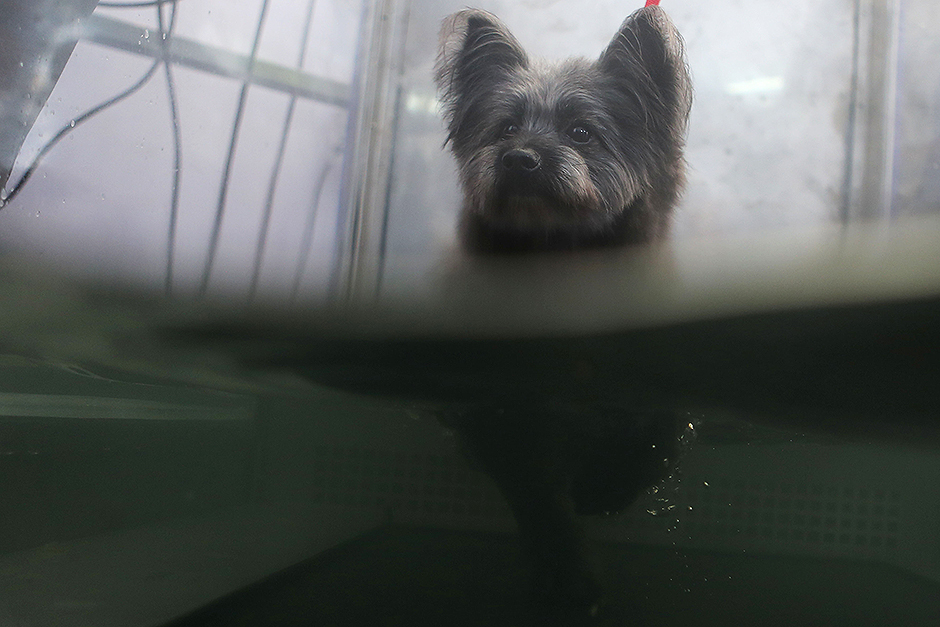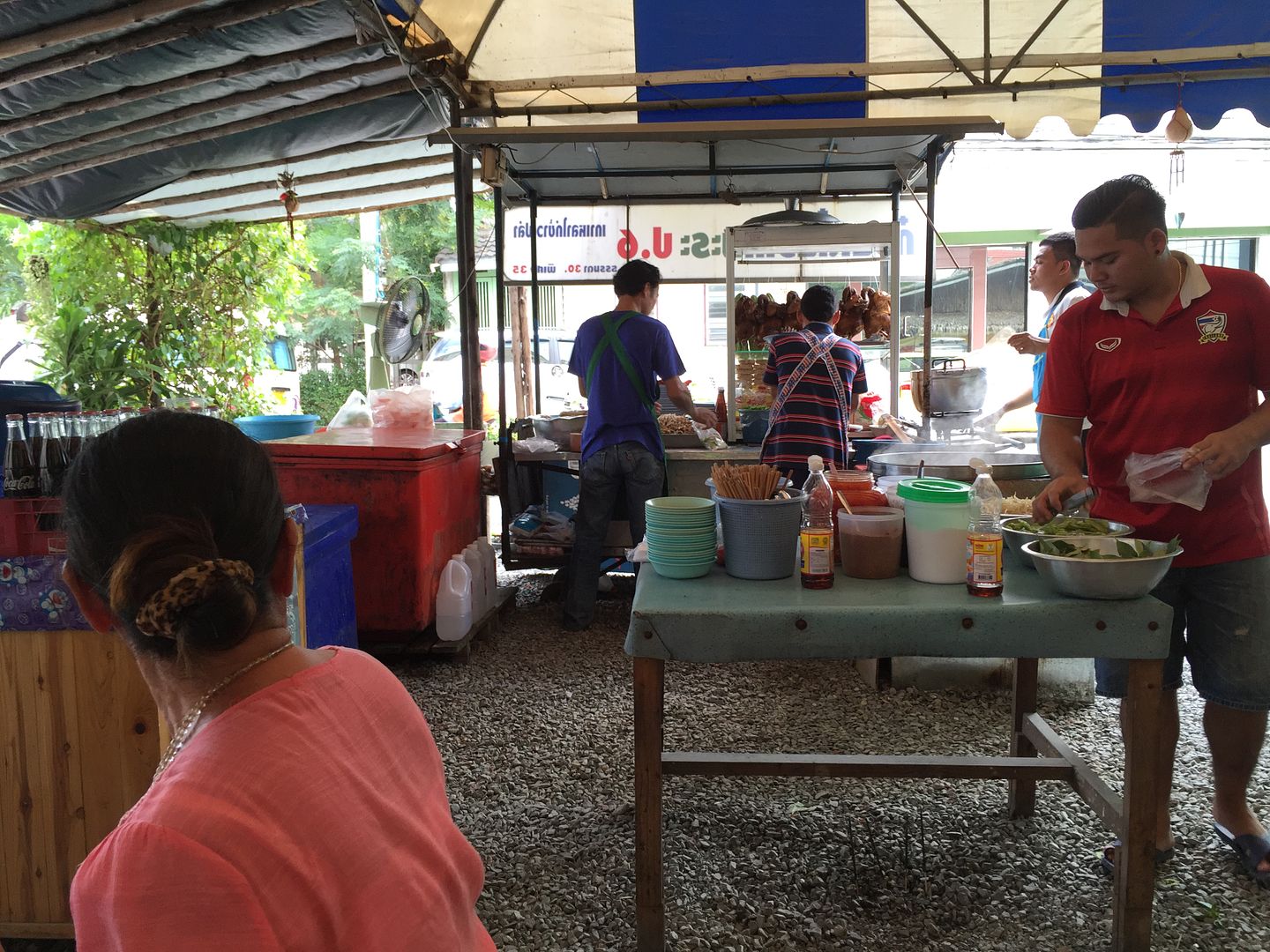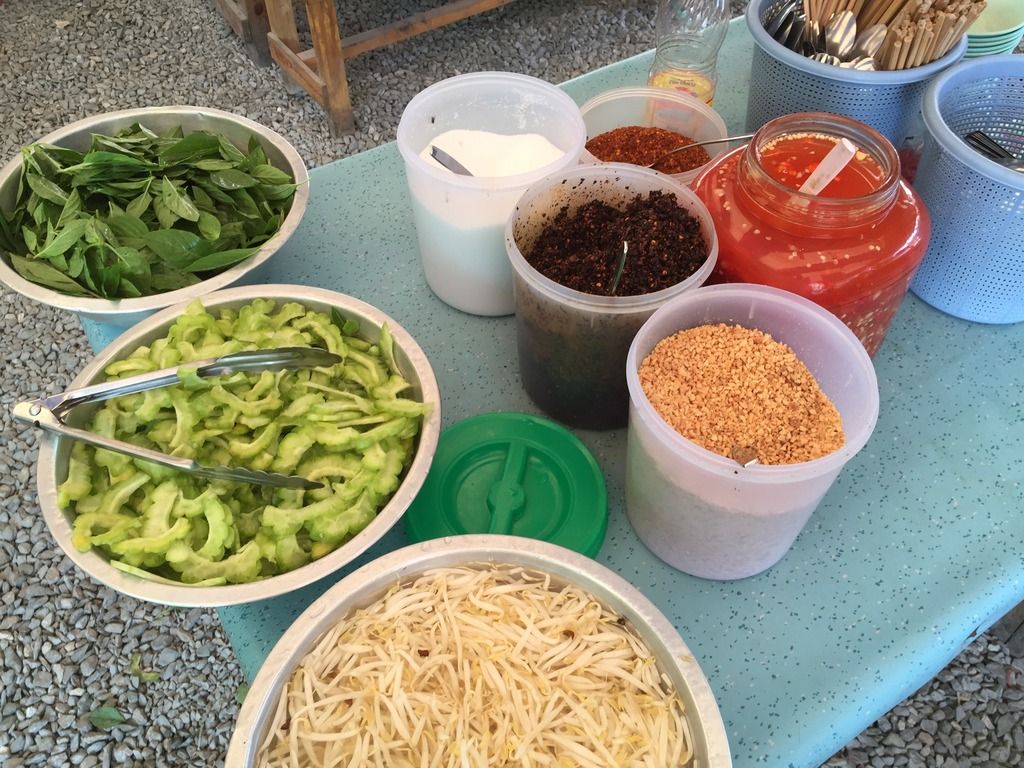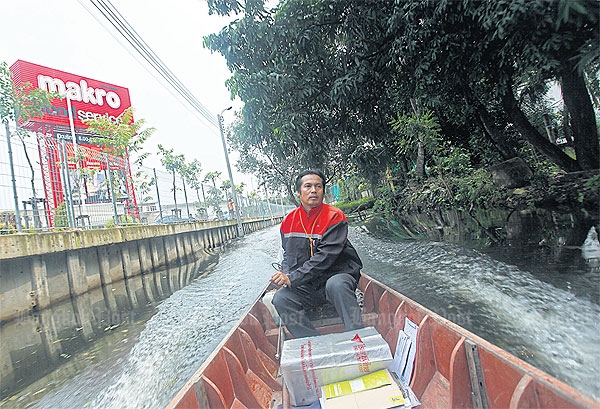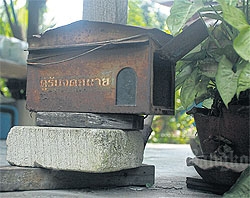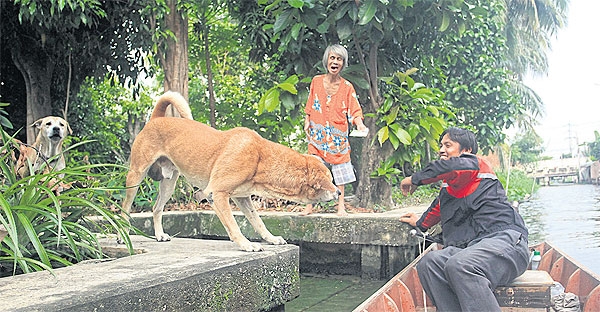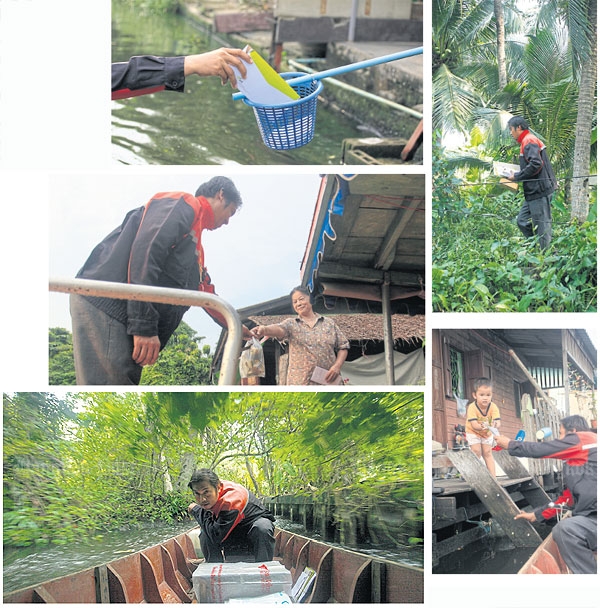- Joined
- Jul 15, 2008
- Messages
- 21,146
- Points
- 113
Crtical piece on marathon cock-up :p
Marathon debacle a wake-up call

Thailand wants to go places. It wants to rise up in world rankings. Although its military leaders sometimes feign ignorance and defiance as if the world revolves around Bangkok, not the other way around, it does seek global recognition in many ways. A case in point is the Ministry of Tourism's promotion of the country as a key destination for sports tourism to tap the surging popularity of sporting events such as running, cycling, and even triathlon.
So it should come as a shock to us all that Thailand still has a very long way to go because it cannot professionally organise a running race. Last Sunday, in the wee hours, when most of its inhabitants were still deep asleep, those who get a kick out of hitting the pavement for the City of Angels' signature run -- the Bangkok Marathon -- were out in force, more than 33,000 of them.
In its "half" category, or 21.1 kilometres, thousands of runners got more than they bargained for - literally. The organisers misled these runners into a 27.6-kilometre run. This unhappy story would be just another also-ran in Thailand's abyss of mishaps had the global media not latched on to it, including the Associated Press, The Guardian, Newsweek and even the BBC. Many parts of the globe are now abuzz, amazed and amused at the world's longest half-marathon in Bangkok, a dubious distinction for a capital that wants to stand up and be counted.
If Thailand can't even organise a running event to acceptable international standards, how can this country ever hope to rise in the global economic competitiveness indexes?
Or maybe it does not. Maybe it just wants to sulk in its pride to be "Thai" and disregard the world going by. Certainly, Thailand often behaves like a third-world country even though it has been shown to have first-world aspirations. While the Bangkok Marathon fiasco is a mere microcosm of Thai incompetence, it should serve as a wake-up call to get our act together.
To go global and be a serious contender in the world pecking order, Thailand needs competence and accountability. The Bangkok race, for example, was sponsored by a major multinational company, and managed by a local sporting event organiser in collaboration with the National Jogging Association of Thailand. Bangkok, just like other major global cities from Tokyo and London to Boston and Berlin, prides itself on holding a marathon once a year.
The additional distance of 30% on top of the 21.1km was sheer incompetence. The miscalculated distance caused strain and undue health hazards to less prepared runners, many of whom were first-timers who practised for months to debut in this event.
On many levels, it was an emotional let-down and a health risk. Many half-marathon runners were frustrated and upset for having worked so hard only to be messed about by the organisers. Some runners suffered physically from exhaustion, cramps, and an assortment of non-lethal but painful hardships.
Apart from incompetence, accountability was slow and timid. It was as if the organisers were hoping the storm of runner frustration would just blow over. When it became a tempest on social media, picked up by international media and became the talk of the town, the event organiser meekly came out to acknowledge the missed distance and promised T-shirts for overrunning runners, as though this was a special event to remember and cherish. On top of those offences, the organiser gave himself the same job for next year by pledging that his company's performance will improve by then.
Thailand's penchant for a lack of accountability is too common. When things go really wrong, eruptive emotions are met with silence and inaction from those responsible until it all blows over to the next thing that goes wrong. The appalling absence of accountability must be addressed on a wider scale. Bangkok's marathon is small fry but it is symptomatic of a social illness writ large.
Lessons should be learned on how such micro-level lack of competence can hurt the overall country's competitiveness. First and foremost is the need for Thailand to meet international standards that are already out there. If we don't know how to do something, look and learn how global high-achievers do it and try to do it as well and better than they do. This goes from the political system, human rights practices, aviation and other industry standards, to sports rules and regulations.
We can aim to be both globalised and localised, not taking what others do at face value, while adopting and adapting international norms and rules to suit Thailand's particular needs. But we must not reside in a cocoon.
Second, professionalism should be added as another core value in addition to the existing 12 that the military junta has bequeathed. Being professional involves knowing what one is doing, paying attention to details of the heart of the matter, committing to the task at hand, and showing responsibility when something goes wrong.
A running race organiser should know how to measure distance correctly as much as an event sponsor should be able to determine who the best event organisers are.
Gritting one's teeth and pushing forward despite exhaustion is what runners in the Bangkok Marathon 2015 did for the extra distance mistakenly added to their course. At the very least, let that be a lesson on how international competitiveness cannot be achieved without local competence and accountability. Let the runners' pains and anger lead to something constructive for Thailand's future.
Pavida Pananond is associate professor of International Business at Thammasat Business School, and an avid runner who was among the seven thousand entered in the Bangkok Half Marathon 2015.
About the author
Marathon debacle a wake-up call
- Bangkok Post Published: 19/11/2015 at 03:30 AM

Thailand wants to go places. It wants to rise up in world rankings. Although its military leaders sometimes feign ignorance and defiance as if the world revolves around Bangkok, not the other way around, it does seek global recognition in many ways. A case in point is the Ministry of Tourism's promotion of the country as a key destination for sports tourism to tap the surging popularity of sporting events such as running, cycling, and even triathlon.
So it should come as a shock to us all that Thailand still has a very long way to go because it cannot professionally organise a running race. Last Sunday, in the wee hours, when most of its inhabitants were still deep asleep, those who get a kick out of hitting the pavement for the City of Angels' signature run -- the Bangkok Marathon -- were out in force, more than 33,000 of them.
In its "half" category, or 21.1 kilometres, thousands of runners got more than they bargained for - literally. The organisers misled these runners into a 27.6-kilometre run. This unhappy story would be just another also-ran in Thailand's abyss of mishaps had the global media not latched on to it, including the Associated Press, The Guardian, Newsweek and even the BBC. Many parts of the globe are now abuzz, amazed and amused at the world's longest half-marathon in Bangkok, a dubious distinction for a capital that wants to stand up and be counted.
If Thailand can't even organise a running event to acceptable international standards, how can this country ever hope to rise in the global economic competitiveness indexes?
Or maybe it does not. Maybe it just wants to sulk in its pride to be "Thai" and disregard the world going by. Certainly, Thailand often behaves like a third-world country even though it has been shown to have first-world aspirations. While the Bangkok Marathon fiasco is a mere microcosm of Thai incompetence, it should serve as a wake-up call to get our act together.
To go global and be a serious contender in the world pecking order, Thailand needs competence and accountability. The Bangkok race, for example, was sponsored by a major multinational company, and managed by a local sporting event organiser in collaboration with the National Jogging Association of Thailand. Bangkok, just like other major global cities from Tokyo and London to Boston and Berlin, prides itself on holding a marathon once a year.
The additional distance of 30% on top of the 21.1km was sheer incompetence. The miscalculated distance caused strain and undue health hazards to less prepared runners, many of whom were first-timers who practised for months to debut in this event.
On many levels, it was an emotional let-down and a health risk. Many half-marathon runners were frustrated and upset for having worked so hard only to be messed about by the organisers. Some runners suffered physically from exhaustion, cramps, and an assortment of non-lethal but painful hardships.
Apart from incompetence, accountability was slow and timid. It was as if the organisers were hoping the storm of runner frustration would just blow over. When it became a tempest on social media, picked up by international media and became the talk of the town, the event organiser meekly came out to acknowledge the missed distance and promised T-shirts for overrunning runners, as though this was a special event to remember and cherish. On top of those offences, the organiser gave himself the same job for next year by pledging that his company's performance will improve by then.
Thailand's penchant for a lack of accountability is too common. When things go really wrong, eruptive emotions are met with silence and inaction from those responsible until it all blows over to the next thing that goes wrong. The appalling absence of accountability must be addressed on a wider scale. Bangkok's marathon is small fry but it is symptomatic of a social illness writ large.
Lessons should be learned on how such micro-level lack of competence can hurt the overall country's competitiveness. First and foremost is the need for Thailand to meet international standards that are already out there. If we don't know how to do something, look and learn how global high-achievers do it and try to do it as well and better than they do. This goes from the political system, human rights practices, aviation and other industry standards, to sports rules and regulations.
We can aim to be both globalised and localised, not taking what others do at face value, while adopting and adapting international norms and rules to suit Thailand's particular needs. But we must not reside in a cocoon.
Second, professionalism should be added as another core value in addition to the existing 12 that the military junta has bequeathed. Being professional involves knowing what one is doing, paying attention to details of the heart of the matter, committing to the task at hand, and showing responsibility when something goes wrong.
A running race organiser should know how to measure distance correctly as much as an event sponsor should be able to determine who the best event organisers are.
Gritting one's teeth and pushing forward despite exhaustion is what runners in the Bangkok Marathon 2015 did for the extra distance mistakenly added to their course. At the very least, let that be a lesson on how international competitiveness cannot be achieved without local competence and accountability. Let the runners' pains and anger lead to something constructive for Thailand's future.
Pavida Pananond is associate professor of International Business at Thammasat Business School, and an avid runner who was among the seven thousand entered in the Bangkok Half Marathon 2015.
About the author
Last edited:

